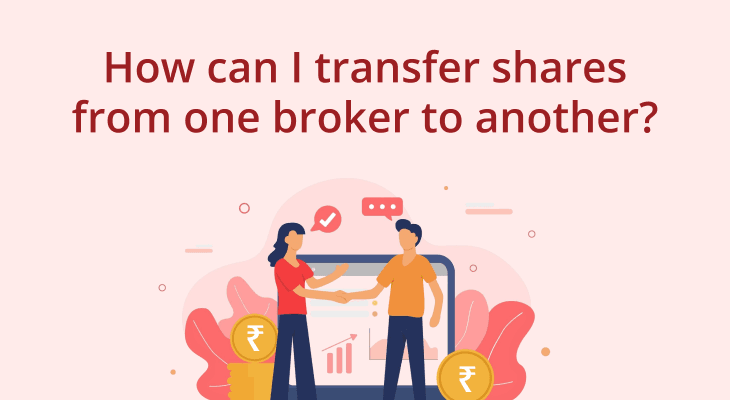
What is Overtrading? Why Too Much Action in the Market Can Backfire
There’s something intoxicating about the stock market. The thrill of a green candle. The sense of possibility every time the opening bell rings. That urge to take control, to act, to do something. It’s a feeling that pulls in seasoned traders and first-timers alike—especially in India, where the world of stocks is now just a swipe away. But in all this rush, a simple question tends to get lost: what is overtrading?
Let’s call it what it is. Overtrading is the compulsion to buy and sell too often, usually without a real plan. It’s when excitement, boredom, or even anxiety pushes you to keep clicking “Buy” and “Sell,” sometimes dozens of times a week. The reasons behind it, the causes of overtrading, are usually more emotional than rational—FOMO, a string of recent wins, or a need to recover losses in a hurry.
If you’re wondering whether this is a big deal, consider what’s happening in India. The past few years have seen a surge in new retail investors, thanks to user-friendly apps like Zerodha, Groww, and Upstox. Over 15 crore demat accounts are now active. That’s a revolution.
But the democratisation of access has a flip side—many jump in without preparation, quickly finding themselves stuck in a loop of overtrading. As Zerodha’s Nithin Kamath has put it, “Low brokerage charges can’t save you from your impulsiveness.
It’s easy to get swept up in the energy. But there’s a cost, and it’s worth pausing to ask: Are you investing or just being busy?
Additional Read: 5 Reason Why 95% Traders Lose Money in Stock Market
Common Signs That Indicate You’re Overtrading
So, how do you spot overtrading before it gets out of hand? It rarely announces itself. Instead, it sneaks in through everyday habits and small decisions. Here are some tell-tale signs.
You’re consistently placing trades: Sometimes, you can’t even remember why you entered half of them. Maybe you start the day planning to do nothing, but a bit of market chatter, a news flash, or a WhatsApp forward has you clicking “Buy.” You might see yourself selling stocks at a loss, then rushing back in to try and “fix” it. This revenge trading is one of the classic causes of overtrading.
Constant monitoring: Staring at Sensex or Nifty ticks all day, feeling restless, afraid you’ll miss out. Or taking ever-bigger risks and betting much more than you intended, often with leverage. The emotional side is just as telling—mood swings, tension, maybe even losing sleep.
If some of this sounds familiar, you’re not alone. The first step is recognising it.
The Real Cost: Mental and Financial Impact of Overtrading
What does overtrading cost you? More than you’d expect.
Let’s start with the numbers. Every trade has an invisible leak—brokerage fees, STT, stamp duty, GST, and exchange charges. It might look like “just a few rupees,” but add up to hundreds of trades, and you’ll realise you’ve been paying more to your broker and the government than you keep for yourself. SEBI’s rules now require apps to show all these costs upfront. It’s a reality check few can ignore.
But the story doesn’t end there. Rapid-fire trading often means you cut your winners short, cling to losers, or miss the magic of compounding. The data is sobering: over 95% of active traders in India lose money, most leaving the market within a few years. Overtrading is a big reason behind this churn.
Then there’s the mental side. The stress of being “always on,” chasing the market’s next move. Anxiety after losses, the dopamine hit after a rare win. It’s a rollercoaster, and it doesn’t just affect your portfolio—it affects your well-being. Sleep suffers. Relationships get tense. Trading has become less about money and more about feeding a habit.
Staying Away from the Trap: Practical Ways to Avoid Overtrading
Is there a way out? Absolutely. It starts with intent and a little structure.
Have a plan: That chalks out what you’re trading, how much, and why. Set your entry and exit points in advance, and respect your stop losses. Some traders swear by a checklist. Before each trade, they ask: “Is this a part of my plan, or am I reacting emotionally?” That pause can save you from dozens of unnecessary trades.
Set limits: Maybe it’s the number of daily trades or a hard stop after two consecutive losses. Keep a journal—write down what you did and how you felt before and after each trade. Patterns will emerge; sometimes, all it takes is seeing your own behaviour on paper to change it.
When in doubt, take a break: The market isn’t going anywhere. The best investors often say their most profitable days were the ones they did nothing at all. Remember, quality always beats quantity.
Watch out, too, for outside pressure. Not every suggestion from a broker is in your interest—sometimes it’s about their targets, not your goals. Be aware.
Finally, keep updating yourself. SEBI’s circulars and trading guides are more readable than you’d think. Understanding the rules helps you play the game better.
When Overtrading Goes Wrong: Lessons from Real Life
Sometimes, the dangers of overtrading show up in headlines.
Take for instance JP Morgan’s “London Whale” episode. In 2012, a trader known as the “London Whale” made increasingly large bets on complex credit derivatives. What began as routine trades quickly escalated as the team kept doubling down to cover earlier losses, ignoring several internal warnings along the way. When the market turned against them, JP Morgan ended up losing over $6 billion—one of the largest trading losses in banking history. The episode became a global headline and raised tough questions about oversight and risk management.
Similarly, there’s the story of Nick Leeson at Barings Bank in the 1990s. Leeson was a derivatives trader who, after some initial losses, started hiding them in a secret account. Instead of cutting his losses, he kept taking larger and riskier bets, hoping to recover what he’d lost. Eventually, the losses became impossible to hide, resulting in a staggering £827 million loss and the collapse of the 233-year-old bank. Both cases show how unchecked, compulsive trading can spiral far beyond control—even in the world’s most established financial institutions.
Closer home, the stories don’t always make news, but they’re real. Indian retail traders have spoken openly about losing ₹50-70 lakh in just a couple of years, often with borrowed money, chasing losses, and never walking away. The spiral is vicious—trade more to recover, lose even more, and the pattern repeats.
And sometimes, it’s not you, but your broker who is nudging you to trade more. Churning portfolios for commissions is an old story. It never ends well for the investor.
Each story, big or small, teaches the same lesson: overtrading can undo years of effort in a matter of months. Discipline, not activity, is the real edge.
Conclusion
To sum up, overtrading is a warning to pause, ask why you’re trading, and remind yourself that movement isn’t always progress. The market will always have another opportunity, but your peace of mind and capital are worth protecting.
The antidote isn’t just fewer trades. It’s trading with purpose, a plan, and your own goals in sight, not someone else’s. In a world that rewards hustle, sometimes the bravest thing you can do is wait.
So, next time you feel the urge to make “just one more trade,” remember: the best traders often trade the least. Be that investor.


